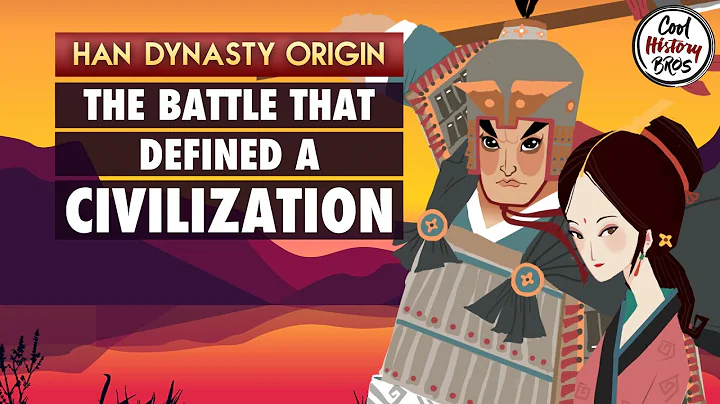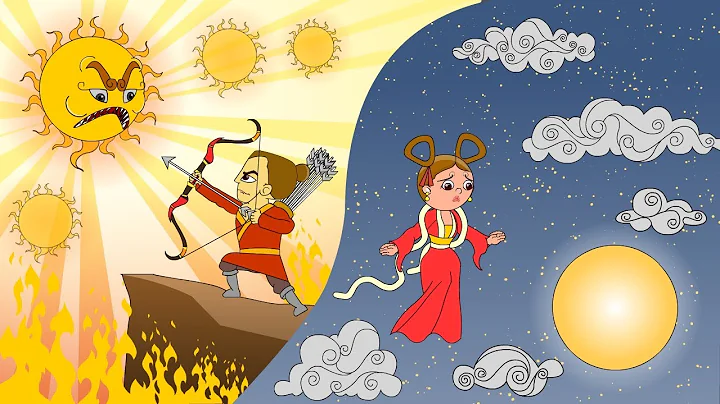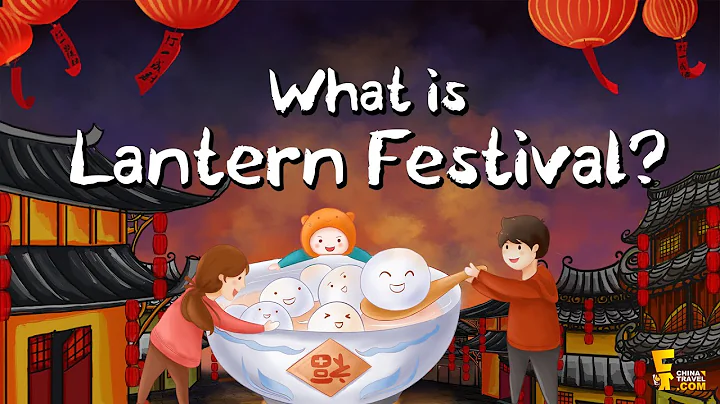
A hundred years ago today, a little boy was born in Gaoyou, Jiangsu Province, named Wang Zengqi. According to the lunar calendar that year, it happened to be the Lantern Festival. Wang Zengqi later wrote articles many times to recall that he was familiar with the taste of the New Year.




Slide to view the next picture
They are the study room in the late 1980s, with Shen Congwen in 1961, with Jia Pingwa in 1986, and in the home of the American Iowa writer Nie Hualing in 1987 (Photo: People's Literature Publishing House)
Life style Many colleagues and readers have the biggest feelings about Wang Zengqi. In the Internet era, Wang Zengqi has become popular many times and has been on the "hot search". This is also due to the warmth and responsibility of the older generation of literati in him, as well as Very friendly literary expression.
More and more readers are first attracted by his "advanced" quotations and fall in love with him, and then come into contact with his literary works, seeing the complexity of human nature and the difficulty of the world in his writings, as well as his unchanging "Believe in life, believe in like".
During the epidemic, many readers missed the local delicacies through his books. Netizens said, "When the epidemic is over, I will take a copy of your book with me to eat hot dry noodles in Wuhan; go to the wet market to see raw chickens and ducks, Fresh and juicy vegetables, red peppers, bustling and bustling, feel the joy of life."
He is a "gourmet", but his writing is not limited to the food itself:


Just like Screenwriter Shi Hang said, "Even if you have just had a full meal, you will still be so hungry when you read Wang Zengqi's writing about eating. This kind of cooing is also disappointing. Wang Zengqi's words are just sugar-coated bullets. He is for It makes you feel melancholy."
In addition to the delicious food, what is more worthy of attention is the unchanging gentleness and responsibility of his literary character. No matter how the literary trends of the times change, critics and readers will find that Wang Zengqi's literature remains the same. , he said, "What I pursue is not profundity, but harmony." Commentator Gao Yuanbao interpreted this and said that not being "profound" means not wanting to pretend to be "profound". "Harmony" is not numbness and forgetfulness, but avoiding everything. Be close to what you hate, and get close to what you want to be close to.

In the reading of Wang Zengqi’s writings by a series of writers and critics published by this newspaper over the years, we can see many wonderful views, which help us to understand this literary giant more closely:


“Wang Zengqi brought the most gentle and gentle character of Chinese culture to Those things are summoned, and these are becoming the most urgently needed spiritual nutrition in our current society. Moreover, Wang Zengqi also connected ancient and modern times, with thousands of years of experience in Chinese language and literature, and debugged the most modern things in his writing."
—— Sun Yu
Some writers will increasingly demonstrate their literary value as time goes by. Wang Zengqi is one of them. Because he breaks and establishes within literature, and while subverting the past, he also affects the direction of future novels. Wang Zengqi's novels are not only his unique style, but also his soulful writing. Because the soul of his novel is present. The presence of the soul is an important issue facing our current writing.
- Xie Zhiqiang
read Wang Zengqi at night, rubbing these under the lamp, life seemed to be integrated into one by the words, like the sound of a bell at dusk, echoing in the moonlight, and like "notes walking into the score one by one", warm Warmly, all spring flowers bloom together.
- Qian Hongli
On the centenary of Wang Zengqi's birth, publishing houses and websites have expressed their commemoration. Lingdu Culture has launched the book "A Hundred Years of Zengqi: 1920-2020", with a preface by his eldest son Wang Lang and included It contains the memories and commentaries of 60 well-known scholars and writers, including Tiening, Zongpu, Wang Anyi, Ye Zhaoyan, Zhang Xinxin, and Shi Hang. Douban also launched a special topic "The 100th Anniversary of Wang Zengqi's Birth", inviting readers to write their own reading insights.


Today, we share with you an article interpreting the ordinary characters in Wang Zengqi’s works. It is the appearance of these common people that allows everyone to see that what he advocates and insists on is the profound humanistic and ecological connotation in traditional Chinese culture. The folk character of ethical pursuit is the cultural foundation on which we still maintain "our" in the face of various modern trends.
Buyige
Text/Gong Jing
(This newspaper February 8, 2018)
It is clear at a glance that many civilian characters in Wang Zengqi's works, especially in those works set in his hometown of Gaoyou, sell wontons and cooked food, open pharmacies and sell firecrackers. Those who make yarn, those who deliver babies, those who collect corpses, those who sell vegetables and sell rice, those who grind tofu and carry wontons, those who teach and practice medicine, all kinds of people, all kinds of businesses, support a family business and live a life.
They all have abilities, no matter how big or small they are. If a skill is close to them, it must be refined enough to make a living and to respect others. You have the ability, but you don’t make waves in the world, you don’t have a lofty forehead, you are arrogant, you have your own sense of right and wrong in your heart, you live an ordinary life, and you are a quiet and self-contained person.

The complete works of Wang Zengqi (twelve volumes in total), People's Literature Publishing House 2019 edition
For example, Mr. Wang Danren, a character in "The Fishing Doctor" of "Hometown Man". In his own small courtyard, where he lives and works at a clinic, he makes all the medicines himself. "My wife, children, and children are all his assistants," and the materials used are real. The indigo on the scabies' heads and the big round pancakes on the scabies' cheeks are all "painted with old ink mixed with borneol." However, how can you be embarrassed to ask for more money for such a minor surgical illness? Moreover, not all local patients can afford to pay in cash. Sometimes they are given eggs, sesame seeds, a chicken, or half a bag of quails. When encountering real difficulties, For the poor patients, "the children of the patients would lie down and kowtow." Looking at the really poor patients, Wang Danren "not only waived the consultation fee, but also gave away the money for medicine." "The Danren couple have not bought any clothes for more than ten years." The villagers said that Wang Danren was stupid. I've done even stupider things. The first one: There was a flood one year. Wang Danren "tied four iron chains around his waist, each of which was divided into the waist of a sailor." Together with four sailors, he risked the capsizing of the ship to rescue the trapped villagers. , treat their illnesses. "This is really a life-threatening thing!" Another stupid thing to support Wang Bingzhi, a young man who spent all his time eating, drinking and having fun and ruined his family fortune. It was delicious and delicious. I invited Fa to stay at home, and also used the musk borneol stored in many homes. "Someone asked Wang Danren: 'Why are you treating him?' Wang Danren was a little puzzled by this and said: 'If I don't treat him, he will die.'" Wang Bing didn't have any money. After he recovered from his illness, He could only write a lot of thank you posts and post them on the streets all over the city to spread the name of Wang Dan people. "Tanren's wife is virtuous, but this time she couldn't help but ask how much those musk borneols were worth. Wang Danren smiled and said: 'It's not much. - I still have it.'" In fact, readers like us also know this He was helping the poor and caring for children free of charge. How much more hardships could his family with a modest financial background endure? Mr. Danren was just indifferent.
In addition to seeing doctors, making medicine and doing "silly things", his biggest hobby is fishing. His home is next to a river, and he sits by the river and fishes every day. "Take with you a small white clay charcoal stove, a small pot, a suitcase with all the onion, ginger and seasonings, and a bottle of wine." "Catch a fish, scrape and wash the fish scales, and put it in the pot with your hands." When his daughter called him, he knew there was a patient. "The fishing rod was stuck in the wet mud on the shore, so he got up and walked home." A rack of lentils and a gourd of vegetables are planted in the yard. The seeds of the diced cabbage are specially found. "There is a couplet written by Zheng Banqiao hanging in the clinic, 'a garden filled with vegetables in the spring rain, and a shelf full of lentil flowers in the autumn wind'". Wang Danren "likes this pair very much." Wang Zengqi wrote after this couplet: "This indifferent elegance is very worthy of a humble scholar who does not seek to be famous." People like
remind me of the word "commoner". Don't seek to be famous, but have skills, principles, creeds, be interesting, be casual but not decadent, and have character and style. In today's terms, there is no need to focus, it has its own halo. But it does not pursue a halo, nor does it compete with hundreds of boats. It is just like a reed in the water, doing it naturally.
The novel ends with the sentence: "Hello, Mr. Wang Danren!" The author couldn't help himself.


Manuscripts and paintings
For example, Ye San, the fruit seller in "Connoisseur". "Connoisseur" seems to be about the story between painter Ji Taomin and Ye San, but in fact most of the ink is written on Ye San.Ye San searched for good fruits everywhere, and the ones that were in season were naturally better than those from other places. His special skill was that they were fresh in various places. He did not sell or sell them, but only went to the house and hawked them in baskets for more than 30 years to raise his two sons. It is clear that his son is successful, but he still doesn't want to enjoy the happiness at home. Instead, he likes to sell fruits, even if he only sells them to Ji Taomin, he will be happy. Ji Taomin not only loved to eat Ye San's fruits, but also regarded Ye San as a confidant. While painting, he would eat the fruits that Ye San sent. Ye San looked at his paintings from the side and said, "He concentrates on his painting without even letting his breath come out. Sometimes he sees The highlight is that he can't help but take a deep breath, and even exclaim softly. Wherever Ye San takes a breath and exclaims, it is also Ji Taomin's proud work." So don't look at Ye San as a fruit seller. Understand painting. A piece of wisteria , Ye San said yes, Ji Taomin asked where it was, "Ye San said: 'There is wind in the wisteria.'" Hmm! How do you know? "The flowers are messy." "That's right!" Ji Taomin I picked up a pen and wrote two sentences: There is no one in the deep courtyard, the wind is blowing and the wisteria flowers are blooming." There are many such elegant novels, echoing the sentence at the beginning of the novel, "The first great painter in the county is Ji Taomin, the first The connoisseur is Ye San”. The fruit seller and the connoisseur are just one person without any contradiction. Although Ye San has many paintings by Ji Taomin, he never sells them. After the death of painter Ji, many people wanted to buy paintings from Ye San, but they always said "not for sale". A Japanese man came here because of his name. Ye San thought that he had come all the way, so he had to take out the painting to show him. He could only hear the visitor sighing while looking at it. In the end, he naturally wanted to buy it at any price, but Ye San still didn't want it. Sell. After Ye San's death, his son respected his will and "put Ji Taomin's paintings in the coffin with his father and buried them."
Ye San sells high-quality fruits, and he himself is also of high quality.

"Da Nao Chronicles", Jiangsu Literature and Art Publishing House 2010 edition
Another example is Chen Niluo, one of the "Three Chens in Hometown". Chen is a sailor on a lifeboat who specializes in rescuing people in rough waves. Save people and fish out corpses. All the survivors who were rescued had their families destroyed. "Chen Nilo didn't even ask for their names, let alone ask for any reward." However, he helped to retrieve the bodies, "but it cost a lot of money." This is also true. Unless the direction of the current and wind is unclear, you can't catch the drowned person. Is this a technical job or a risky job? Can I not be paid? Chen Nihao earns a lot of money, but he doesn’t own any property, save anything, or marry a wife. He knows that he has to deal with water every day, and it’s normal for him to have both advantages and disadvantages. “Leaving orphans and widows, I won’t be able to live in the underworld if I die.” “Spend money indiscriminately. When you have money, you drink and urinate, and when you gamble, you lose." But he also "secretly helped some lonely elderly people." Such a person who relies on his ability to make a living seems really inconspicuous, but a place to make a living by the water is really indispensable. No, a female corpse was found in the tunnel of Tonghu Bridge where the water was flowing rapidly. She was stuck there and couldn't move. She was looking for Chen Nilo. Chen Niluo took a look and saw that the water flow was strong and fast. To move the female corpse, he had to use quick and precise skills. Otherwise, he would die. Without further ado, I asked the charity association for help for ten yuan. It’s a little too much, Chen Nilo said, “It’s a little too much, I need it urgently.” I agreed. After all, it’s not a big deal if the body is in the river. Naked into the water, "Following the current, he ran straight into the bridge hole." "There was only a sound, and the female corpse rushed out. Then Chen Nihao jumped out of the water from the east hole. The big guy shouted: 'Good water quality. !'" Chen Niluo took ten yuan and turned around and left. He didn't go drinking and gambling again as everyone thought. He went into Grandma Chen Wu's house. Grandma Chen Wu has been a widow for many years. Her son died, and her daughter-in-law remarried, leaving behind a grandson. The grandson and grandma lived a hard life. In the past few days, my grandson has been suffering from convulsions, and my grandmother was "so anxious that her eyes were straight." I saw Chen Niluo, who had just emerged from the torrent, "put ten yuan in her hand and said: 'Hurry up to Wanquan Hall, grind some antelope horns, give it to the child to drink, and then take it to Wang Danren to see!" ’ After saying that, I hugged the child, took Grandma Chen Wu and left.” This scene is also a series of actions, no unnecessary words, no unnecessary actions, all done in one go, like the figure that “jumped straight into the bridge hole”, refined and Light.
Wang Zengqi's words to describe Chen Nili are also concise and light, entering the water "straightly" and coming out of the water "volleying", his concentration when rescuing people, his eagerness when helping others, and his free and easy daily life. A sailor, stylish and elegant, cold water rushing, warm-hearted, beautiful.
Imagine that Wang Danren saw Chen Niloco rushing to see a doctor with his child in his arms. The two of them would not greet each other politely. One quickly took the child and the other waited beside him. In the end, he probably saw that the child was fine, and Chen Nihao stepped back a few steps. Step, open the door and leave quietly, walk past the lentil flower stand, and walk out of the yard. You should smell the vapor of the lake not far away.
These characters are all common people, and they all have their own skills. They do not seek to be educated and knowledgeable, and they are free to do their own thing. Although the world around them is not without its ups and downs, and natural and man-made disasters occur in turn, they can live how they want to live in the water color and autumn wind, and live out their own characteristics.
These characters are also different from another type of characters that Wang Zengqi is good at writing - craftsmen (such as "The Carmaker"). The latter indeed earn a family fortune by working hard with their craftsmanship, and the characters are quite unique, but It seems that the author rarely writes about the "character" of these characters. Although the word "style" was not easily used in the past. Style and personality were the pursuit of life. However, nowadays, "style" seems to have become a commonplace. To say "style" will It is regarded as "pretend", as if no qualifications are the real temperament, but the word "character" has been overused and has empty connotations. Everything is temperament, and there is probably no temperament. However, I still have to say "character". Why should such a good word be deliberately concealed? Self-respect and respect for others, self-discipline and inner beauty, walking in the world step by step, like a boat traveling in rivers and lakes, having laws and character, and living in this world in vain.

"New Meanings of Liaozhai", Guangdong People's Publishing House, January 2020 edition
This is a very distinctive commoner style in Chinese culture. Commoners are common people, but they are not common people. Just like what Zhuge Liang said, "I am a commoner, working hard in Nanyang, trying to survive in troubled times, and not seeking to learn from the princes." Not all civilians can be called commoners. Commoners are actually a belief that commoners adhere to, or an expectation for themselves. They are not afraid of power, not obsessed with gods, and feel the origin of life in the world. The commoners are somewhat different from the "scholars" in ancient China. Scholars generally refer to scholars, but some of them still hold an official position, or have been in official positions, or have returned home from official positions, and are more inclined to be practitioners of a certain Confucian spirit. The so-called scholars Character and character. As for Buyi, I think he is more of a folk, and may not necessarily be a scholar, but he behaves with a certain degree of advancement and retreat, and may not be like Zhuge Liang's plowing in Nanyang. In fact, he has the mentality of the world, but he has vision, ambition, feelings and realm. Of course, commoners don’t have to talk about realms, they just need to practice a normal mind and live a normal life.
Such as the doctor Mr. Wang Danren's indifference and eagerness for justice, such as the hawker Ye Sansan's subtle but elegant style, such as the sailor Chen Nilu's free and easy and fist-fighting heart. Between the lines, one can see Wang Zengqi's joy for the characters he wrote. Each of them has its own unique characteristics. Each has its own way of living, but what they have in common is that they all have style.
Wang Zengqi talked about his father as a versatile man in the article "Self-reported Family": "Not only is he good at epigraphy, calligraphy and painting, but he is also a gymnast who is good at the horizontal bar and a football player. He has also practiced Chinese martial arts." People often asked for paintings, but they were lazy. "There were a lot of rice papers sent by people asking for paintings piled up in his studio," but he didn't paint. The weather was fine and he opened the studio to paint when he was interested. I like to draw chrysanthemums. I often play with children, know many kinds of musical instruments, and make kites for them. "I am more compassionate and can treat others equally." He said to his son Wang Zengqi: "We have been brothers for many years, father and son." "This temper has also been passed on to me. It not only affects my relationship with my family, children, friends, and descendants, but also affects my relationship with my family, children, and friends. It reflects my attitude towards the characters I write about and my attitude towards readers." Wang's father's name is Wang Jusheng, with a Chinese character of Danru. In addition to his versatile talents, he also inherited the ophthalmology skills of his ancestors. Some studies say that Wang Danren's prototype is Wang's father, Wang Jusheng. Wang Jusheng is just a "scholar of one side". His reputation has not left his hometown, but he is a man of commoner quality.

It may be said that a character like this in Wang Zengqi's novel is just a small city person who has no influence in the surrounding area. He is not the kind of person who has a wide spread and cannot compete with the trends of big cities. However, I personally think that the significance of such a character is not It is not about the size of the place or whether it is prosperous, but it has humanistic and ecological connotations. They carry the ethical pursuit deep in civil society and are the veins of traditional Chinese culture. The so-called modernity of big cities cannot destroy its inheritance. One reason. Not to mention the era of the characters in Wang Zengqi's novels, it is the current society, the era of mobile phone WeChat and intelligent AI. Technology is indeed becoming more and more far-reaching. "One-dimensionality" and "homogenization" have indeed become the trend of modern people, but in the world The world, lifestyles and value pursuits are like the diversity of living things. They will never seek for one thing. Some fundamental qualities in society, culture and human nature are still running deep.
In modern society, "temples" are still popular, and "squares" seem to have been moved to the Internet. The audience and protagonists switch with each other. Various media are developed and the channels of expression have long been diversified. I believe that if the common people are qualified to penetrate into the public In the human heart, there are hidden dragons and crouching tigers, there are those who are casual and ordinary, and there are those who are deafening and enlightening. Perhaps society will be more rational and less violent. No matter what social era or trends change, Buyi Ge should still be a profound part of a person's image.
New media editor: Zheng Zhouming


New Year Cultural and Creative Season





Mailing code: 3-22





















